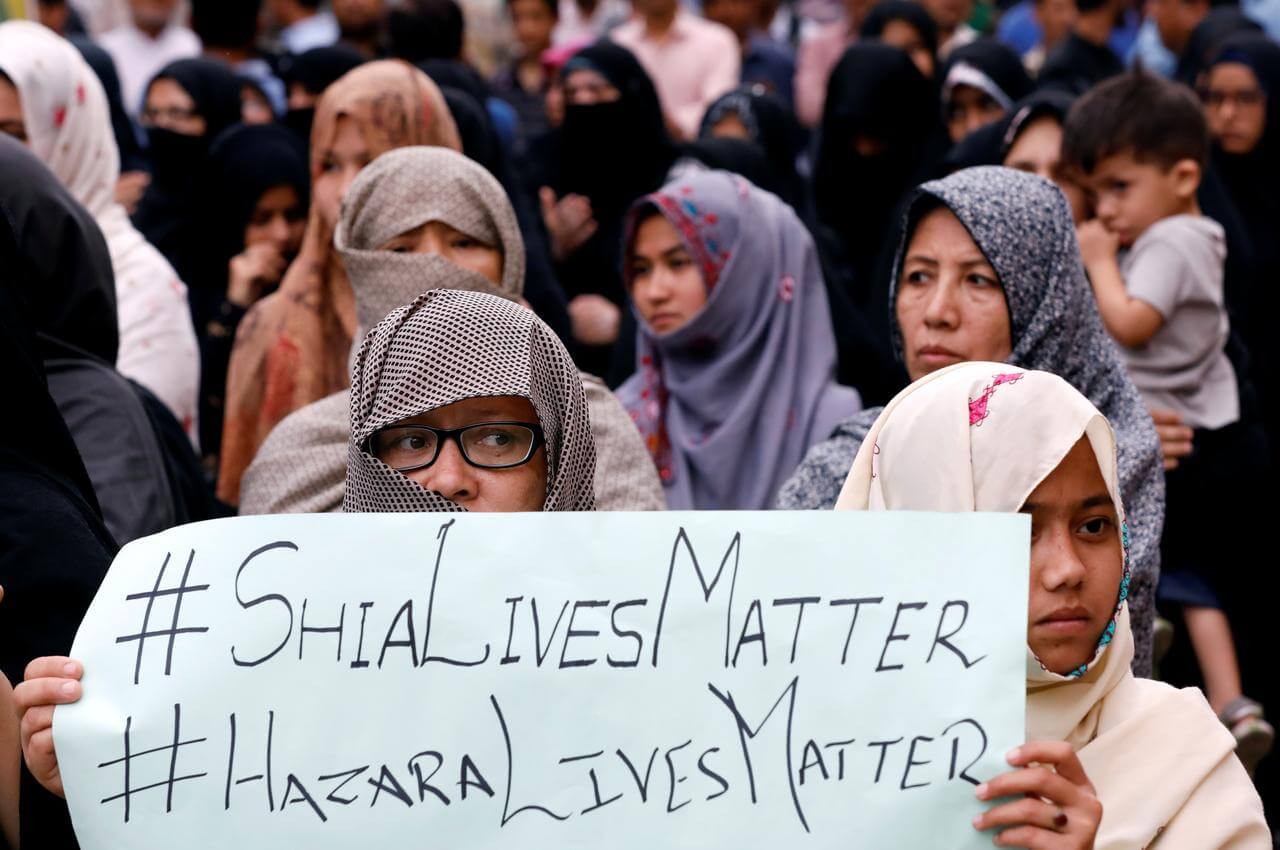On January 2, 11 coal miners, who were a part of the minority Shiite Hazara community, were kidnapped and killed brutally, sparking widespread protests in several cities across Pakistan. According to official reports, four others were injured and were under medical care. The incident took place in the Machh district in Baluchistan, which is merely 30 miles from the city of Quetta. A Pakistani security official, in a public briefing about the incident, said, “The throats of all coal miners have been slit after their hands were tied behind their backs and [they were] blindfolded.” Later that day, the Islamic State (IS) claimed responsibility for the attack.
The incident sparked widespread discontent within the Hazara community, with large crowds taking to the streets and protesting the attack. These protests have been organised and spearheaded by the Majlis-i-Wahdat-i-Muslimeem. The demonstrators have also placed the bodies of the 11 mineworkers on the streets and have refused to proceed with the burial rites until Pakistani Prime Minister Imran Khan pays a visit to Quetta. They have also called upon Khan and the country’s Army Chief, General Qamar Javed Bajwa, to work pro-actively to secure their safety.
However, responding to these requests, Khan urged the protestors to proceed with the burial rites and promised to visit the region “very soon.” He said, “I want to reassure the Hazara families who lost their loved ones in a brutal terror attack in Machh that I am cognizant of their suffering and their demands.” Once again taking cover behind his anti-India narrative, he said that he was aware that “our neighbour is instigating this sectarian terrorism.” Nevertheless, he sent the country’s Shipping Minister, Ali Zaidi, and his advisor on Overseas Pakistanis, Zulfi Bukhari, both of whom are also members of the Shia community, to meet with the protestors. However, this response has not satiated the demonstrators, who are continuing their protests in the streets of Karachi and Quetta.
While Khan has failed to adhere to the demands of the protestors, he has expressed his deep condolences about the attacks, calling it “yet another cowardly inhumane act of terrorism.” He also directed local authorities to “use all resources to apprehend these killers” The attack was also condemned by the United Nations Secretary-General Antonio Guterres, who “strongly condemned” the attack and urged Pakistan to do “everything possible” to take action against the perpetrators.
The Hazara community has been at the receiving end of several violent attacks by Sunni extremists, leaving the Hazara community perpetually threatened by attacks by groups including the Taliba and the IS. Just in April, a suicide bombing in a Hazara-dominated area led to the death of 9 members of the community. However, the last large-scale attack on the community, which led to the death of over 200 Hazaras, was orchestrated in 2013. The Hazara community has also been at the brunt of crackdowns by the Pakistani government, with over 75% of the blasphemy cases in Pakistan being filed against members of the Shia community for speeches made during religious gatherings.
This Persian-speaking community migrated from Afghanistan over a hundred years ago. In Pakistan, they have a population of about 500,000, who largely and primarily reside in two pockets in Quetta in the Baluchistan region. Baluchistan, one of the largest, yet most impoverished, regions in Pakistan has been ravaged with ethnic and separatist unrest for years now. The region has become a breeding ground for separatist groups and the Taliban, specifically in the area bordering Afghanistan. However, Baluchistan has been the central focus of the $60 billion China Pakistan Economic Corridor (CPEC) project, which has been strongly opposed by the locals. In fact, the residents of the region have consistently complained about being deprived of the profits reaped from the mineral and coal-rich region.
Following Attack, Pakistan’s Minority Hazara Community Turns to PM Imran Khan For Help
Pakistan's Hazara community has refused to proceed with the burial rites of 11 Hazara mine workers who were killed by the IS until PM Imran Khan visits Quetta.
January 7, 2021

SOURCE: REUTERS
